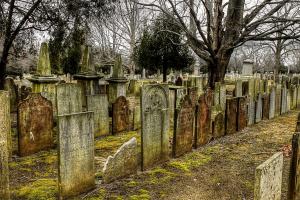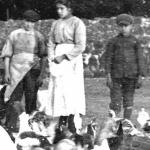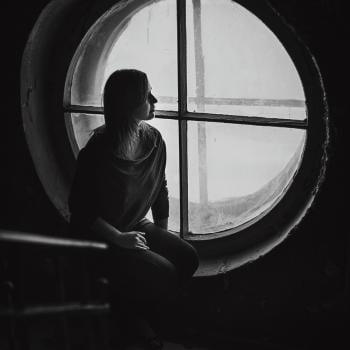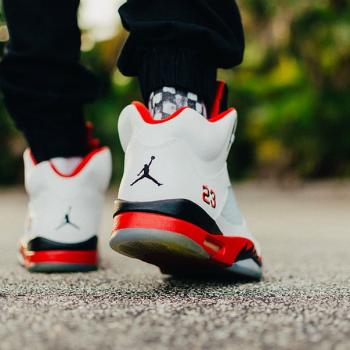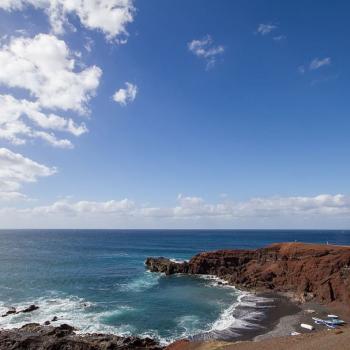I’ve seen a lot of death in my life.
I had gone to three funerals by the time I turned five, though I only remember two. One was my dad’s relatively young and healthy cousin who dropped dead of a massive heart attack, gone before he even hit the floor. Another was my Grandpap who I was especially close with. I remember that day very well (for being only four and a half years old). It was remarkably sunny and bright, green grass surrounded the headstones in the cemetery. The sky was clear and blue with only a few lingering white clouds. For the longest time, I thought he had died in the summertime, but really it was an exceptional day in February in western Pennsylvania. The snow stopped and melted, the sun came out, just for him. Or maybe just for us. I imagined Grandpap floating effortlessly up to heaven on that day. But I ached for him.
Years later, I was with my Grandma as she passed from this life into the eternal. I was with her as she uttered her last words and took her last breath and then fell still and silent on the hospital bed as nurses and doctors rushed in to try to revive her. Eight years after Grandma died, my Gram died. I was with her in her house as she struggled to breath, frightened of what was happening and what was to come. I sat beside the couch she laid on, on the floor, holding her hand, telling her who I was, and that I loved her very much. She couldn’t talk, she didn’t look at me, but we were together. One of my aunts asked me if I thought it was time to call the priest. “Yes,” I replied. I’m told that her priest came shortly after and issued her Last Rites and Viaticum and said to her, “Irene, be at peace. It’s okay now. Go to God.” After this, she stopped shaking, her breathing even out, she took one last breath, and died.
Death surrounds me.
Other family members have died. Several of my former classmates have gone on to the eternal. So many friends and family have suffered miscarriages and stillbirths and infant deaths, even child deaths. People I care about have died. People who I knew only spiritually or from a distance have died and become saints. My mother died. In some ways, I wait for the terrible day when my father will die. I have always visited the cemeteries where my family is buried. And when I make a trip to my hometown, I make sure to visit the graves of my classmates.
I worship a crucified (and resurrected) God. I eat His Flesh, hinge my salvation on His Death and Resurrection. I wait for the day when I will die, hoping, praying that I love Him enough to be eternally united with Him.
To walk in grief by myself is one thing. To walk in my grief with others is one thing. But to need to accompany a child in her grief is inexplicable.
I have been surrounded by death my entire life, but my children haven’t.
While I have experienced the phenomenon of death and heaven eternal from a very young age, my children have not. Not one of their grandparents have died (with exception of my mom who died years before they were born). No extended family members they’d ever met. No family friends.
Their only exposure to death has been that my mom now lives with Christ in heaven (my mother died on Divine Mercy Sunday after receiving the sacraments of Reconciliation and the Eucharist and after having served in the Church that very day as an Extraordinary Minister of Holy Communion and then counted the collections after mass. God’s mercy does not need to be proven but some of you do seek to prove it, so here you go.).
Recently, a classmate of my daughter died after emergency hospitalization due to a medical condition with which he was born.
This was a beloved classmate, someone who was full of life and energy and love for everyone around him. “Doesn’t God know that six is too young to die?” she told me the night after we found out. Yes, God knows that the death of a child is cruel. I pray to the Holy Innocents and to Rachel for their comfort and consolation upon this child’s family and upon my heart.
How, though, do I explain this to a small child? God is good and He is merciful and He is Love, but death does not always appear as any of this. We try to explain death by saying that such and such person got all the time they needed or that their mission on earth was fulfilled or that God just couldn’t live without them anymore. These things are true and small consolations, but they don’t fill the deep void left.
Death is hope.
Death is inevitable, yes. We cannot escape it and, though we try, we cannot postpone it. Death, the great equalizer. It holds no prejudice. Ashes to ashes and dust to dust…
Death, though, calls us on to paradise. It is a great ship sailing us from one wretched life into the new eternal and perfect life. No more tears, no more sorrow, no more pain. We can transcend the pain of this world. We will transcend the pain of this world. Death is but our vehicle.
St. Thérèse said that the world is our ship and not our home. But I disagree. Only slightly! The world is not our vehicle into the next life, but our womb. It is here that we are formed and grown and made ready for the life to come. It is through death that we are pushed through this metaphorical birth canal and out into the real world, Heaven. What we thought we knew here is only but a shadow of the glory of the next life.
Death hurts. It’s scary. But it leads us to the greatest reality we will ever know.
Why do little children die?
Truthfully, I don’t know and I won’t pretend to know. All that I know for sure is that little first grader in my daughter’s class now sees God face to face. He lives a reality now that I cannot even begin to fathom. That little boy brings all of us hope.
Maybe little children die to remind the rest of us that it is as children that we enter the Kingdom of Heaven. God forbid we forget and miss the opportunity to truly love Him. Pray for us, little Dirk, that we may always love God fully, as you did, and that we may always turn to Him in trust and confidence.
Image courtesy of https://pixabay.com/illustrations/cemetery-tombstones-graves-2650712/

